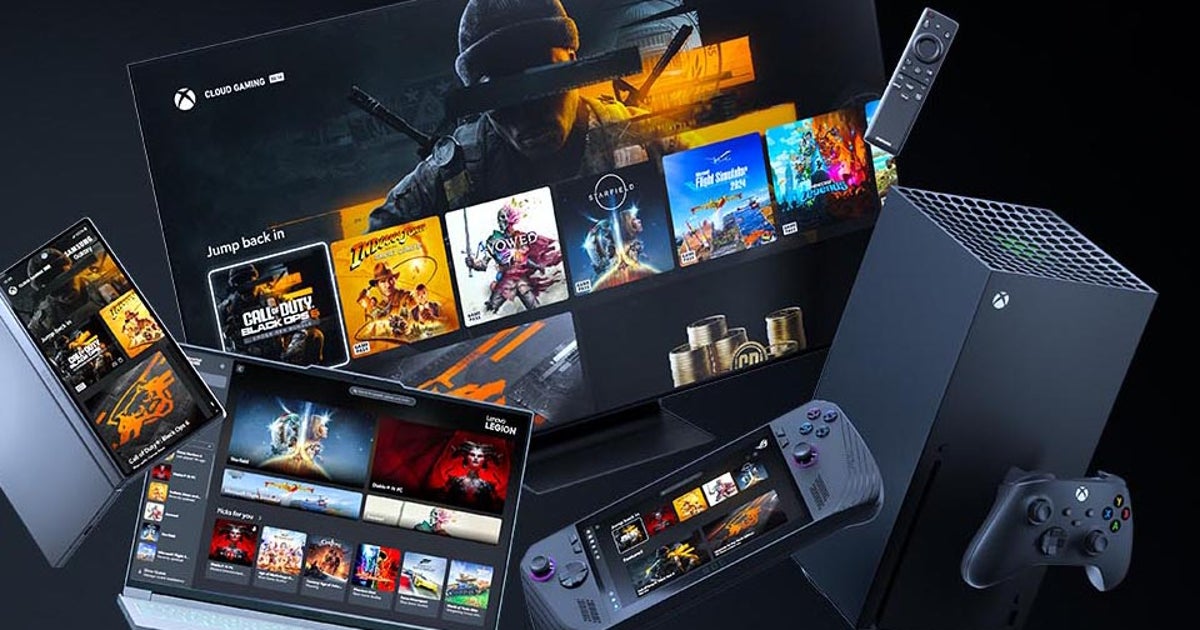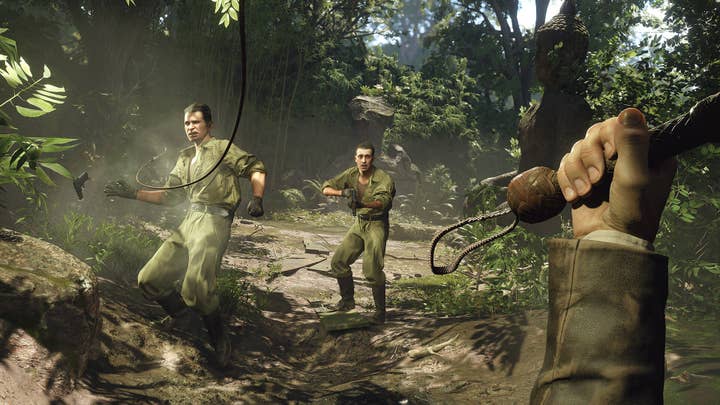
2024 was the year of Microsoft’s grand pivot | Opinion

At the outset of 2024, the most often expressed concern about this year in the games business was that it was going to have a very sparse and underwhelming release calendar, at least compared to the spectacular heights of 2023. This was to some extent a ripple effect from the pandemic years: a backlog of delayed software made its way onto the market during 2023, meaning that with many major studios set to be in the early stages of new projects, 2024’s line-up did not look very inspiring.
With the benefit of hindsight, that fear didn’t entirely come to pass; or at least, whatever slump in the release schedule for 2024 we did experience was spread out rather unevenly around different parts of the industry.
Fears of a fallow 2024 overall, then, did not come to pass – at least not for everyone
From a consumer’s perspective, it’s actually been a pretty solid year for games in the end. It may ultimately come to be seen as the calm before 2025’s GTA 6 storm, but this year has held up remarkably well thanks to a combination of hit titles nobody really saw coming – Helldivers 2 and Astro Bot are especially notable here, having rescued Sony from what would otherwise have been a pretty shockingly empty year in the middle of its console cycle – and, especially in the back half of the year, some games that really defied expectations.
In terms of expectations being defied, quite a few games turned up that had largely been written off as development hell nightmares, and have ended up being actually pretty great. Dragon Age: The Veilguard is the prime example; on a personal level I find its gameplay a little too much of a departure from previous games in the series for my tastes, but taken on its own merits it’s a very enjoyable game and far better than many people had dared to hope for after so many years.
Silent Hill 2 is a remake I don’t think many people had expected to be quite so good, despite its developer’s pedigree in the horror genre. The really unexpected surprise of the year, though, is Indiana Jones and the Great Circle – a title that honestly feels like it has no right being quite as fantastically good fun as it actually is.

Fears of a fallow year overall, then, did not come to pass – at least not for everyone. For some publishers, the danger of 2024 being a lost year was very well-founded, with quite a few companies failing to find a hit title from one end of the year to the other.
Poor old Ubisoft is the unwilling flag carrier for that unhappy bunch; it had probably hoped that the relatively quiet release slates of some other major publishers would give Star Wars Outlaws and Assassin’s Creed Shadows a chance to shine, but the former title sank (arguably a victim of Disney’s mishandling of the Star Wars brand as much as any issue with Ubisoft itself) and the latter has been delayed to 2025. Ubisoft isn’t the only publisher that was struggling to find hits in 2024, but its ongoing struggle to reinvent and reinvigorate its business is likely to be a story that drags out well into next year.
It wasn’t just certain publishers having a rough 2024, though; the year’s successes were spread rather unevenly around game genres as well. I wrote last week about the torrid year live service games had, with high-profile failures ranging from Sony’s Concord disaster to the announcements that the likes of Suicide Squad and XDefiant would be shutting down. Helldivers 2 and Marvel Rivals were the only real bright spots in that market, though it’s worth noting that established games like Fortnite have continued trucking on very nicely even as the live service model gets clobbered everywhere else (and even the bruised and battered Overwatch 2 seems to have had a bit of a comeback year).
On the other hand, it was a great year for single-player action games, thanks to the likes of Black Myth Wukong, Stellar Blade, Final Fantasy VII Rebirth, and many others. Incidentally, it’s also no accident that two of the high points mentioned here – Marvel Rivals and Black Myth Wukong – are from Chinese developers; after many false starts and a huge amount of investment, this was the year in which China really started flexing its muscle as one of the major global centres for game development.For all that, however, I suspect that when we come to look back at 2024 through some future lens, the most important story is going to be what happened to Microsoft this year.
[Buying Activision Blizzard] was always part of a huge business transformation in the making, and the existing identity of Xbox as a platform was always on the chopping block
This has been an incredibly pivotal year for Microsoft’s strategy as a game publisher and platform holder, as it embarks on one of the boldest, and arguably trickiest, transitions that any company in this industry has ever attempted. It’s a transition that seemed inevitable to many observers of its struggle to purchase Activision Blizzard – there were plenty of voices warning that completing that acquisition would effectively mean the end of Xbox as we knew it – but it seems nonetheless to have blindsided many of the most ardent Xbox fans (most of whom were vocal supporters of the deal in question, at that).
Spending so much money on buying one of the industry’s largest publishers was never going to be about just propping up a console business that was consistently losing out to both Sony and Nintendo in the global market. This was always a huge business transformation in the making, and the existing identity of Xbox as a platform was always on the chopping block.
Microsoft has become one of the world’s largest and most influential publishers (propped up massively in that role this year by Black Ops 6 being a high point in the series’ recent history, and Indiana Jones being so well-received), but in the process it has become something very different from a traditional platform holder. Xbox hardware will now necessarily play second fiddle to the broader idea of Xbox as a platform service and Microsoft as a third-party games publisher. The business that will emerge will undoubtedly be more robust and successful; whether it will still be recognisably anything like Xbox was in the past remains to be seen.
One thing to watch carefully in the coming months is consumer response to the ‘This Is An Xbox’ campaign, which is a bold attempt to explain and outline this complex strategy to the wide consumer audience. Not to be a downer on the campaign (it’s a very well-executed piece of marketing), but to make an anecdotal judgement from the confused reactions I’ve heard personally, I’m not sure it’s landing quite like Microsoft had hoped.
Consequently, 2025 may well be a year of experimentation for the company as it tries to explain what exactly Xbox means now to a broad audience who are not quite so cued-in to boardroom buzzwords as the people to whom these ideas were pitched internally.
As ever, we end the year with some broad strokes outlining how the next year will probably shape up. We know that it will be defined to a great extent by the impact of GTA 6 and Nintendo’s new console launch; we can expect stories like Microsoft’s repositioning and re-explaining of Xbox, Ubisoft’s attempts to rebuild its publishing success, and the ongoing implosion of the live service dream all to continue to develop through the year.
We can at least hope, though, that the enormous wave of stories of layoffs and studio closures that made headlines for the past two years will not follow us into 2025; fingers crossed for a year of green shoots and optimism instead.






